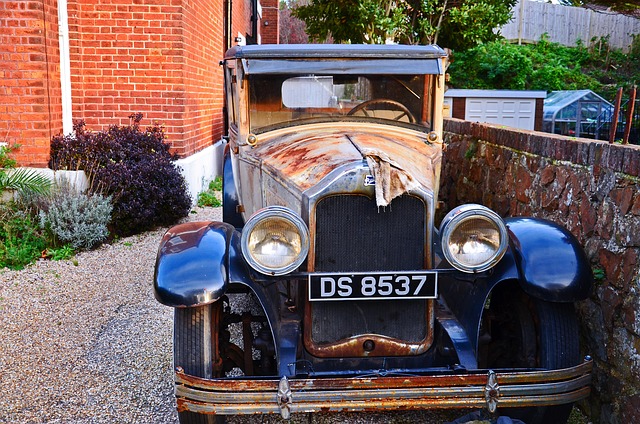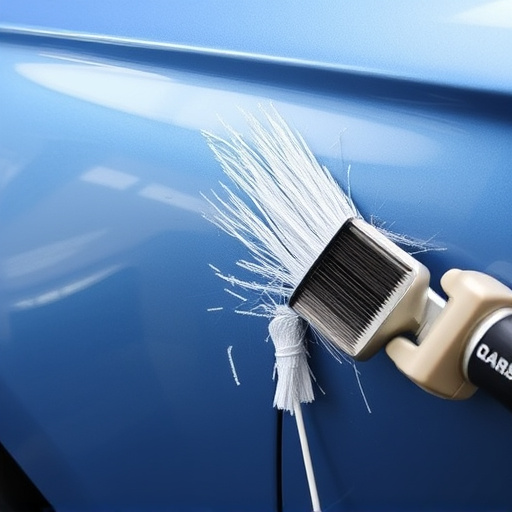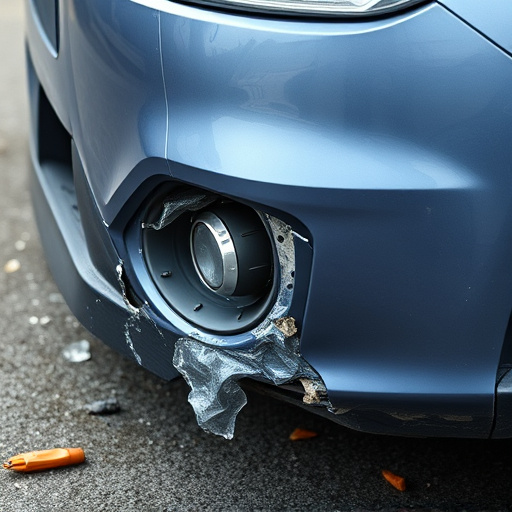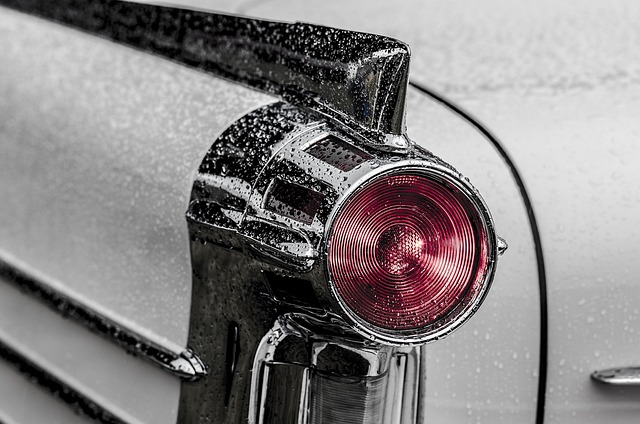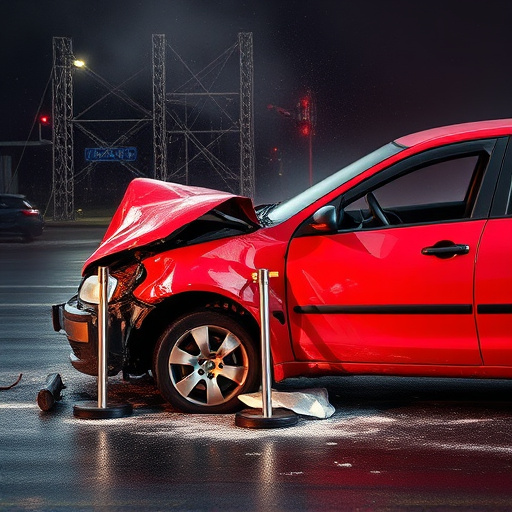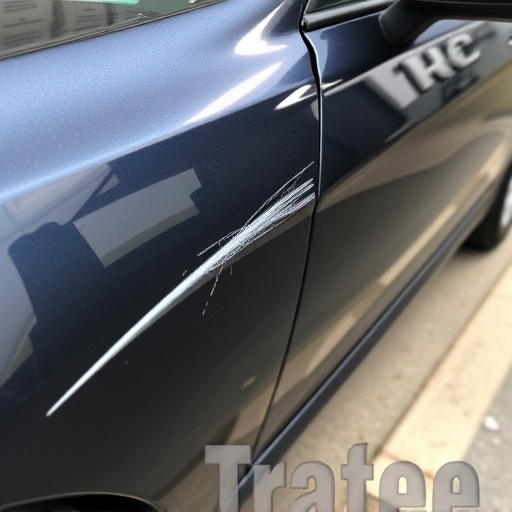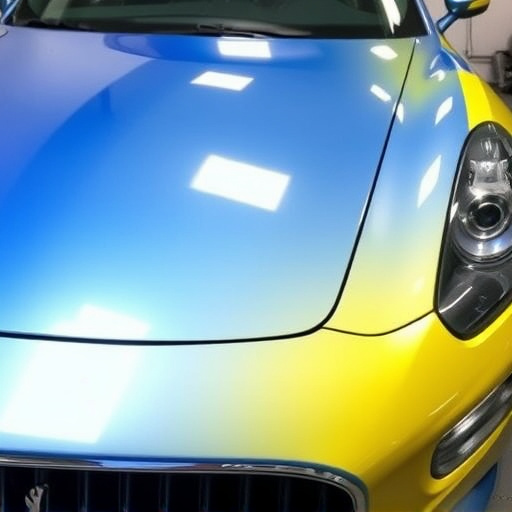Model S collision centers require skilled technicians proficient in advanced technologies like paintless dent repair (PDR) and structural restoration to meet modern vehicle repair demands. Effective training programs, featuring comprehensive curriculums, practical facility use, interactive learning, regular assessments, and industry partnerships, equip trainees with both theoretical knowledge and hands-on skills. These programs have revolutionized the industry by standardizing certification for advanced auto body painting and electronic system diagnostics tailored to electric vehicles (EVs), ensuring high-quality, precise repairs, enhanced customer satisfaction, and improved safety for Model S vehicles.
“Unleash the full potential of your Model S collision center with comprehensive training and certification. This article guides you through the essential aspects, from identifying unique training needs specific to Model S repairs to highlighting key components for robust certification programs. We explore how these initiatives elevate industry standards, ensuring top-notch service and safety. Discover the benefits that come with staying ahead in Model S collision center management.”
- Understanding Model S Collision Center Training Needs
- Key Components of Effective Certification Programs
- Benefits and Impact on Industry Standards
Understanding Model S Collision Center Training Needs
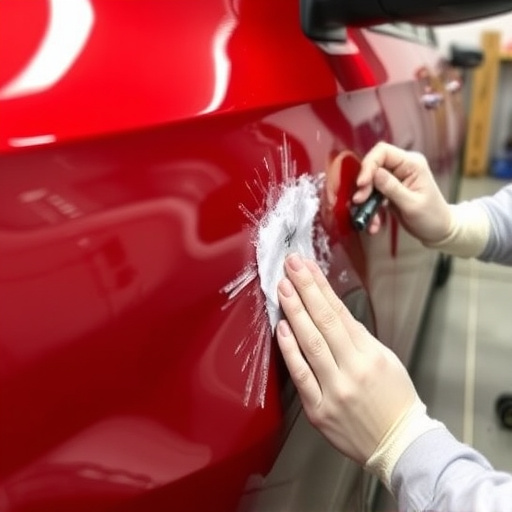
In the realm of automotive servicing, Model S collision centers stand as vibrant hubs, offering specialized care for vehicle damage restoration. Understanding the unique training needs of these centers is paramount to ensuring their effectiveness and the quality of auto repair services they provide. The landscape of modern car bodywork demands a intricate knowledge base, from traditional metalworking techniques to advanced technologies like paintless dent repair (PDR).
Training programs must cater to a diverse set of skills, including structural repair, painting, and electronics recalibration. Given the ever-evolving nature of auto repair technology, continuous education is crucial. By equipping collision center technicians with up-to-date knowledge in areas such as PDR, which offers benefits like reduced repair times and minimal paint disruption, these programs ensure that Model S vehicles receive the best possible care.
Key Components of Effective Certification Programs
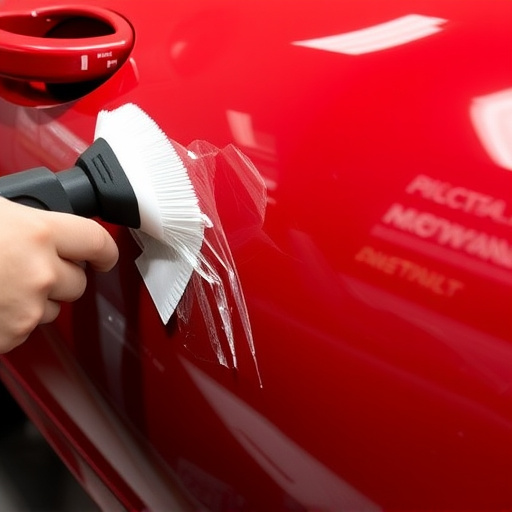
Effective certification programs for Model S collision centers should incorporate several key components to ensure high-quality training and skill development. Firstly, comprehensive curriculum is essential, covering a wide range of topics from basic auto body repair techniques to advanced car body restoration methods. This ensures that trainees gain a thorough understanding of the entire collision repair process. Additionally, hands-on training in state-of-the-art facilities allows students to practice their skills on real vehicles, fostering practical expertise alongside theoretical knowledge.
The program’s structure should also promote interactive learning environments where participants can collaborate and learn from each other. Incorporating assessments and evaluations at regular intervals helps gauge progress and identify areas for improvement. Furthermore, industry partnerships with leading collision centers can provide valuable insights into real-world practices, ensuring that certification aligns with current industry standards and best practices in the field of collision repair, including auto body repair and car body restoration.
Benefits and Impact on Industry Standards
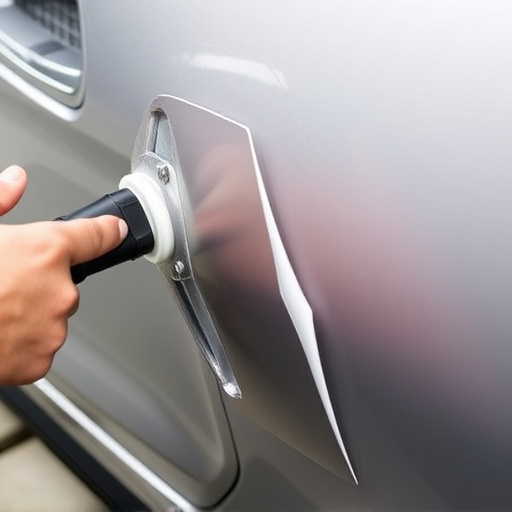
The Model S collision center training and certification programs have significantly elevated industry standards, ensuring that professionals in the field possess the skills and knowledge required to handle modern vehicle repairs effectively. These programs offer a comprehensive curriculum covering everything from advanced auto body painting techniques to intricate electronic system diagnostics, addressing the complex needs of electric vehicle (EV) repair.
By implementing standardized training, the Model S collision centers have fostered a culture of excellence within the industry. The certification process ensures that only qualified and competent technicians work on these specialized vehicles, ultimately enhancing customer satisfaction and safety. This has led to improved quality control measures in auto body restoration processes, resulting in more precise and longer-lasting repairs for collision repair centers across the board.
Model S collision center training and certification programs play a pivotal role in enhancing industry standards, ensuring competent professionals, and promoting safety. By understanding specific training needs, incorporating key components like hands-on learning and practical assessments, and leveraging these programs for continuous improvement, the automotive industry can achieve higher levels of excellence. These initiatives not only benefit businesses but also guarantee better outcomes for vehicle repairs, thereby fostering customer trust and satisfaction.


